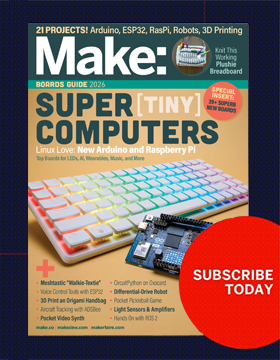
The Open Source Hardware Association (OSHWA) runs a free program that allows creators to certify that their hardware complies with the community definition of open source hardware. Whenever you see the certification logo, you know that the certified hardware meets this standard.
Currently the Certification database lists over 2600 individual certifications! In November we added 25 new certifications, from debug probes to joystick adapters to smart city sensor devices, and everything in between! Here are three new certifications from around the world that we think you should check out today.
Bajo Board UID ID000011

Photo via Muhammad Ihsan Al Hafiz
The Bajo Board is a low-cost multi-sensor seismic imaging system that combines accelerometers, inclinometers and seismometer sensors. This project includes open source hardware and software, and is designed to fit into a standard commercially-available enclosure. Developed by the National Research and Innovation Agency of Indonesia, it is part of a project to create early warning systems for earthquakes and tsunamis. Reducing the cost of sensor units allows for the deployment of more sensors, which increases the system resolution, accuracy, detectability of events and resiliency.
BeagleV®-Fire UID US002572

Photo via Deepak Khatri
The BeagleV Fire is an open-source hardware single-board computer (SBC) based around a quad-core 64-bit RSIC-V processor. Multiple high-performance I/O interfaces are provided, including Gigabit Ethernet, on-board ADC, USB, and two PCIe Gen2 ports. The project includes open source hardware and software, but unfortunately the additional FPGA functionality still requires a closed-source toolchain. This SBC allows the open source community to quickly and easily start to work with a high-performance RISC-V platform.
Synthwave UID US002582

Photo via Alexander Ose
The severity of the CO2 pollution crisis demands that we explore all available options to draw down CO2 levels in the atmosphere, and CO2 extraction from water is one such promising approach. The Synthwave is for an experimentation platform for electrochemical CO2 capture from seawater, based on a technique developed by MIT. It provides all of the infrastructure required to experiment with different types of electrodes. The project includes open source hardware, open source software, and 3D printable models for holding all the components together, and is a good example of how open source hardware can make cutting-edge science and technology more accessible.
You can keep up with updates on all the latest certifications by following our certification bot on mastodon https://botsin.space/@OSHWA_OSHW or submit your project to be certified today at https://application.oshwa.org/
ADVERTISEMENT






